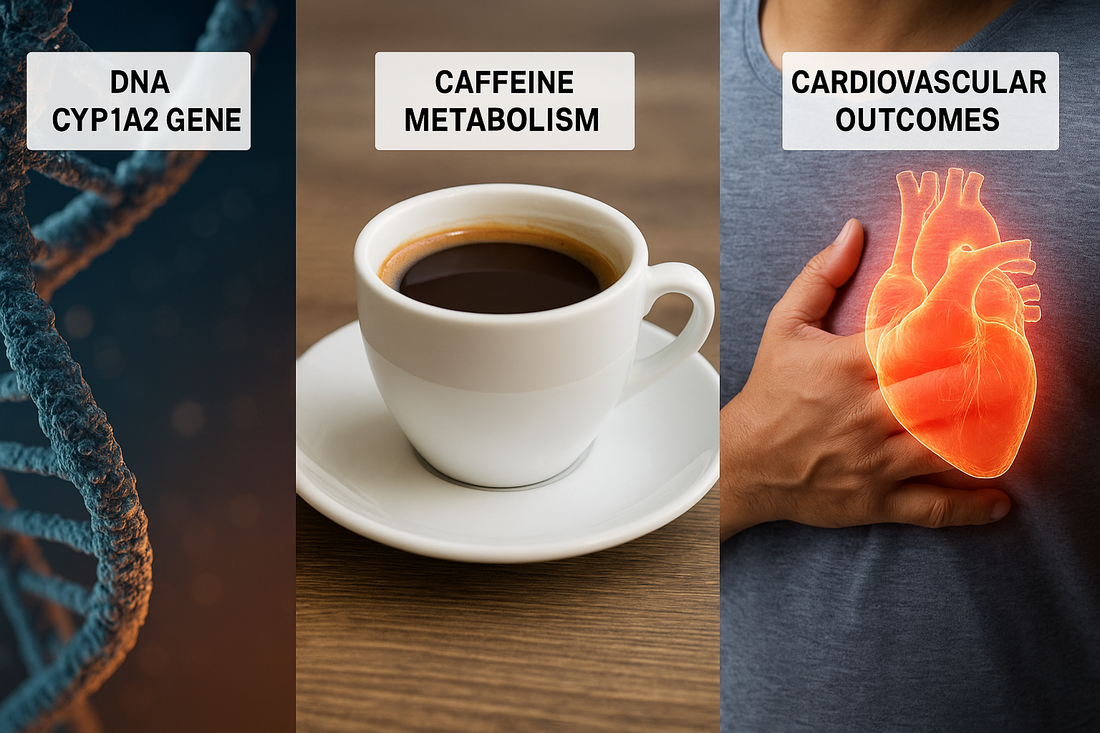
The CYP1A2 gene determines caffeine metabolism speed and influences cardiovascular disease risk. CardiaX testing helps personalize nutrition, supplementation, and therapeutic approaches.
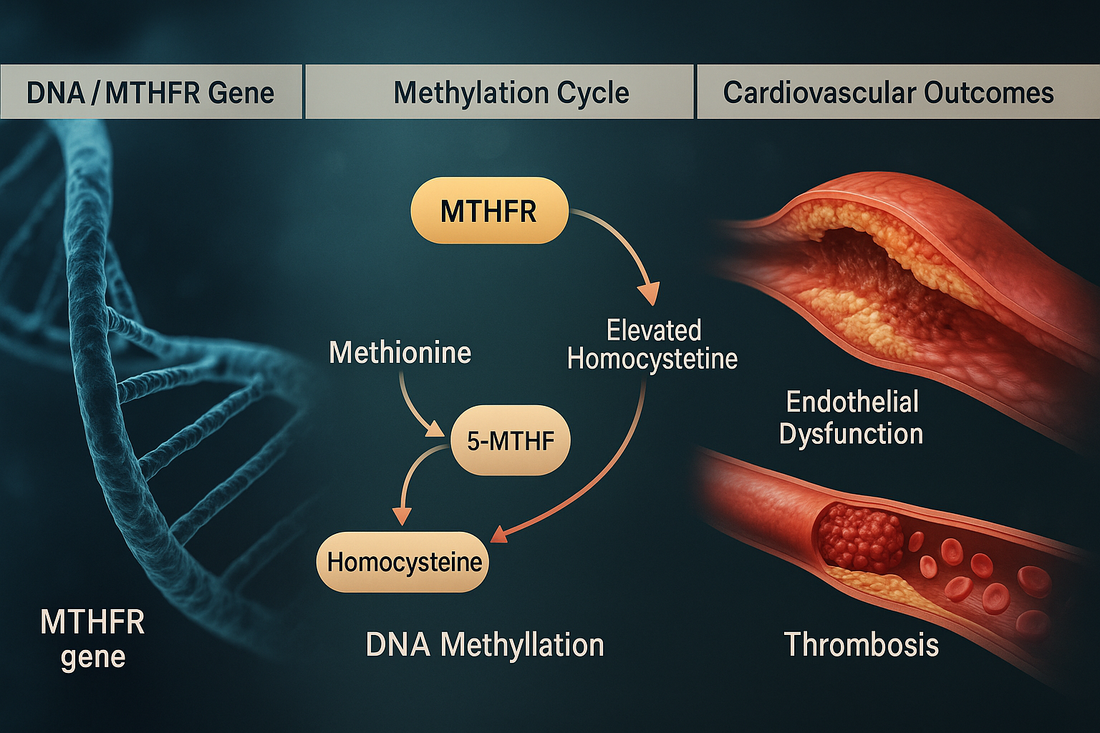
The MTHFR gene is essential for folate metabolism and homocysteine clearance. Variants like C677T and A1298C increase cardiovascular disease risk through impaired methylation. CardiaX testing...
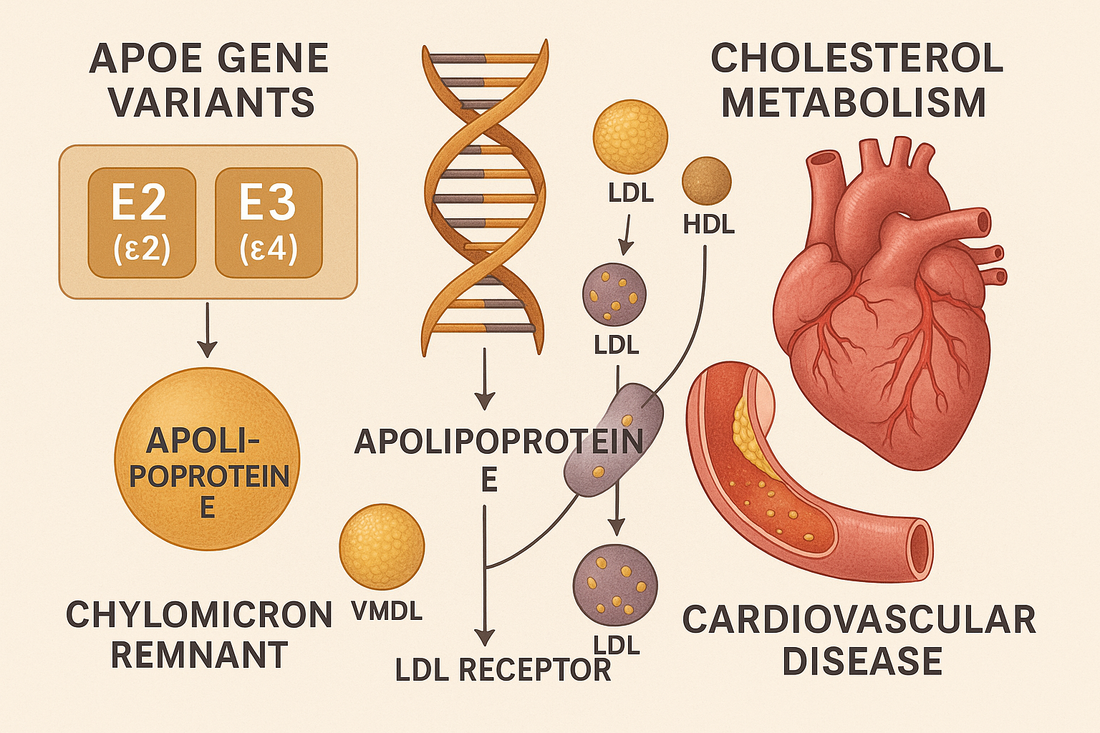
The APOE gene plays a central role in lipid metabolism and cardiovascular health. Different variants—E2, E3, and E4—affect cholesterol transport, inflammation, and atherosclerosis risk. Here’s...
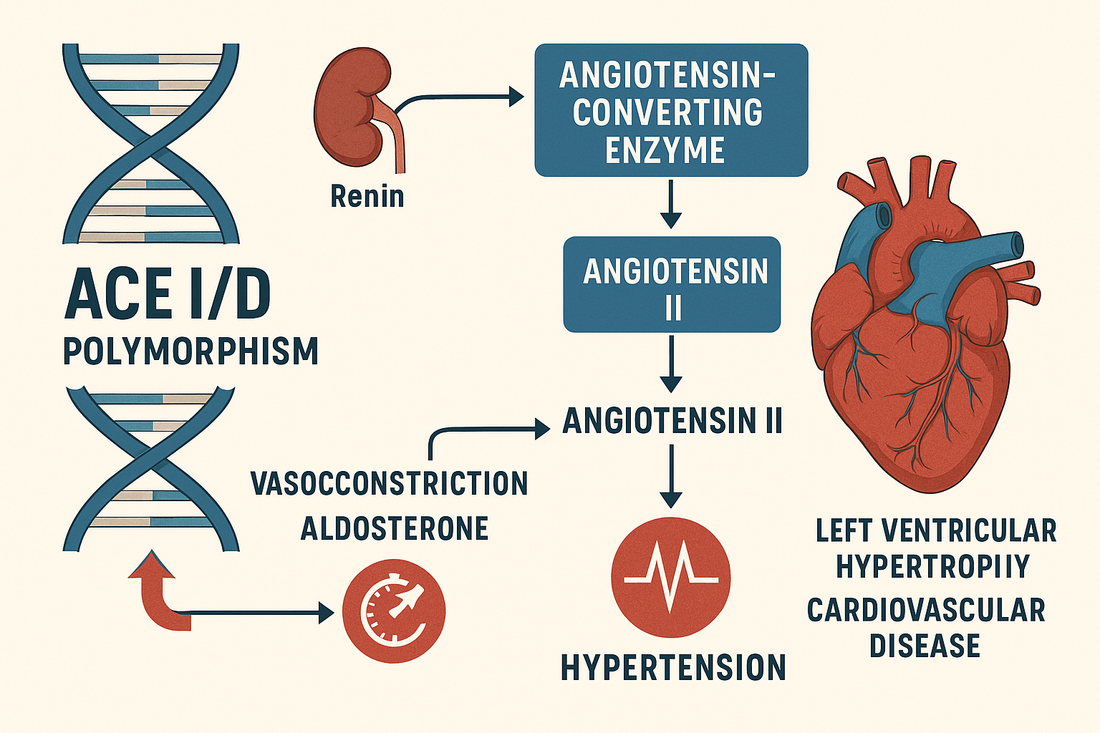
The ACE I/D polymorphism affects enzyme activity, hypertension, and cardiovascular disease risk. Learn how to interpret your CardiaX results and apply targeted lifestyle, supplement, peptide,...
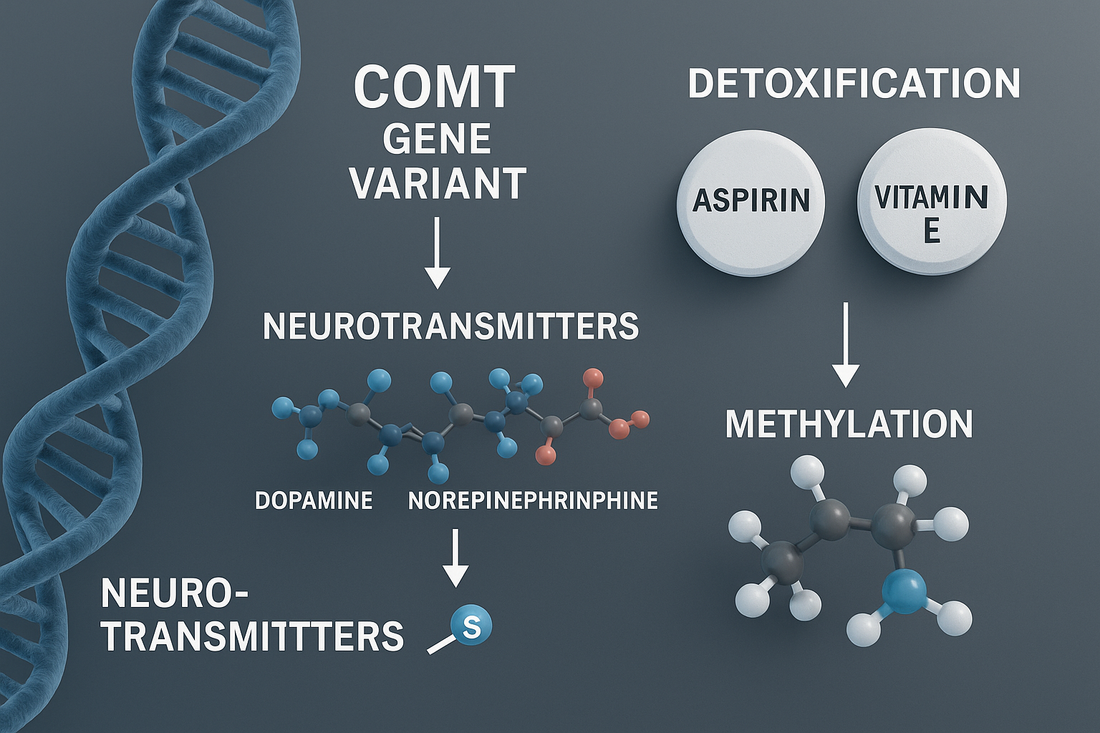
COMT variants influence dopamine and catecholamine metabolism, methylation, and detoxification. Discover how lifestyle, nutraceuticals, and careful use of aspirin or vitamin E can...

APOC3 variants can impair triglyceride clearance, raising risk for hypertriglyceridemia, pancreatitis, and cardiovascular disease. Here’s how to interpret your CardiaX result and mitigate the risks.